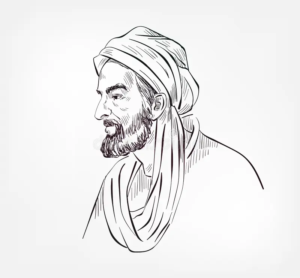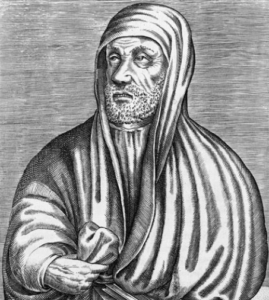Avicenna flying man thought experiment modern relevance
Avicenna: Philosopher & Physician – The Polymath Who Healed Knowledge and Bodies

But what makes Avicenna trending today? In an age debating artificial intelligence, medical ethics, and the unity of science and spirituality, Avicenna’s integrative thinking provides a roadmap: science without philosophy is blind, philosophy without science is empty, and medicine without ethics is incomplete.
This blog takes you through Avicenna’s life, philosophy, medicine, and legacy, weaving in historical anecdotes and modern reflections, to show why his thought still matters—and why his name keeps resurfacing in global conversations.
The Making of a Prodigy
Childhood in Bukhara
Avicenna was born near Bukhara (modern Uzbekistan) in 980 CE. His father, a tax official, ensured his son had access to education. By age 10, the young boy had memorized the Qur’an and mastered classical Arabic—a feat that would foreshadow his lifelong devotion to learning.
Encounter with Knowledge
As a teenager, he studied logic, geometry, astronomy, and metaphysics under local scholars, quickly surpassing them. By 16, Avicenna claimed to have fully grasped medicine, calling it “not difficult compared to mathematics and metaphysics.” Soon after, he began practicing as a physician—gaining fame not only for his skill in diagnosis but also for his gentle approach with patients.
Royal Physician at 17
At just 17 years old, Avicenna successfully treated the Samanid ruler Nuh ibn Mansur, earning access to the royal library in Bukhara. This was transformative: inside lay rare Greek, Indian, and Persian manuscripts, which Avicenna devoured. From this treasure trove, he forged the foundations of his encyclopedic knowledge.
The Philosopher’s Vision
Avicenna believed philosophy was not merely an abstract pursuit—it was a medicine for the soul. His works sought to unify Aristotle’s rationalism, Neoplatonism’s spirituality, and Islamic theology into a coherent system.
The Book of Healing
Despite its title, this was not a medical text. The Book of Healing (Kitāb al-Shifāʾ) was a sprawling encyclopedia covering logic, natural sciences, mathematics, psychology, and metaphysics. It aimed to “heal” ignorance by providing intellectual clarity.
Within it, Avicenna explored:
- Logic as the foundation of inquiry.
- Natural sciences including physics, geology, and biology.
- Metaphysics, where he developed the concept of the Necessary Existent (wājib al-wujūd)—a God whose existence is self-evident and who sustains all contingent beings.
The Flying Man: A Thought Experiment
Avicenna’s most famous philosophical idea is the Flying Man thought experiment. He asked us to imagine a man created fully formed, floating in mid-air, blindfolded, with no sensory contact. Would he be aware of his own existence? Avicenna argued yes—the man would have an innate awareness of his soul, independent of the body.
This experiment anticipated later debates on consciousness, influencing both Islamic philosophers and European thinkers like Descartes. Today, neuroscientists and AI ethicists revisit the Flying Man as an early probe into the mystery of self-awareness.
Bridging Reason and Faith
Unlike some rationalists, Avicenna did not reject religion. He saw philosophy and faith as complementary: reason clarified divine truths, while revelation grounded human understanding in morality. His synthesis influenced Islamic theology, Christian Scholasticism, and even Jewish philosophy through figures like Maimonides.
Avicenna the Physician

If Avicenna’s philosophy healed the soul, his medicine healed the body. His most enduring legacy in this realm is The Canon of Medicine (al-Qānūn fī al-ṭibb), completed around 1025.
The Canon of Medicine
This five-volume masterpiece systematized centuries of medical knowledge—from Hippocrates and Galen to Indian and Persian traditions. But Avicenna didn’t just compile; he critiqued, reorganized, and added original insights.
Key contributions include:
- Diagnosis through pulse and urine analysis.
- Recognition of contagious diseases, such as tuberculosis.
- Insights into pediatrics, gynecology, and psychology.
- Early descriptions of diabetes and meningitis.
- Emphasis on clinical trials and empirical observation—centuries before modern scientific method.
The Canon became the standard medical text in Europe for over 600 years, studied in universities like Montpellier and Padua until the 17th century.
Psychiatry and Holistic Healing
Avicenna viewed health as a balance of body and soul. He described cases of melancholia (depression), recognizing psychological factors in illness. One famous anecdote tells of a prince suffering from lovesickness; Avicenna diagnosed the cause by observing changes in the young man’s pulse as different names were mentioned, eventually curing him through counseling.
In this way, Avicenna foreshadowed psychosomatic medicine and even modern psychiatry.
Anatomy and Surgery
Though limited by the religious restrictions of his time, Avicenna’s anatomical descriptions were remarkably precise. He distinguished nerves from tendons, emphasized the importance of the spinal cord, and proposed surgical methods like nerve repair—ideas centuries ahead of his era.
Beyond Medicine: Science and Innovation
Astronomy and Physics
Avicenna was fascinated by the cosmos. He theorized about the nature of stars, the Milky Way, and planetary motion. Some historians believe he may have observed the supernova of 1006, the brightest stellar event in recorded history.
In physics, he challenged Aristotelian mechanics, developing ideas resembling the modern concept of inertia. His notion that an object in motion remains in motion unless acted upon prefigured Newton’s first law.
Chemistry and Perfume Science
Avicenna experimented with distillation, creating methods to extract essential oils from flowers. This not only influenced perfumery but also laid groundwork for chemistry and pharmacology.
Legacy Across Civilizations
Influence in the Islamic World
Avicenna became a central figure in Islamic philosophy (falsafa). Schools of thought debated his ideas for centuries. Theologians like al-Ghazālī criticized him, while philosophers like Suhrawardī and Mullā Ṣadrā extended his insights.
Influence in Europe
Through Latin translations, Avicenna shaped European thought. His Canon of Medicine was a staple in medical schools, while his metaphysics influenced Thomas Aquinas, Albertus Magnus, and the entire Scholastic tradition.
Modern Recognition
– UNESCO’s Avicenna Prize for Ethics in Science (est. 2003) honors scientists advancing ethical reflection.
– A crater on the Moon and an asteroid bear his name.
– His works continue to be studied in philosophy, history of science, and medical ethics programs worldwide.
Lessons for the Modern World
Why revisit Avicenna now? Because his life embodies principles we urgently need:
- Interdisciplinarity: He refused to isolate medicine from philosophy or science from spirituality.
- Empiricism with ethics: He trusted observation and experimentation but always framed medicine within ethical responsibility.
- Holistic healing: He understood the deep ties between psychological and physical health.
- Global synthesis: Avicenna united Greek, Indian, Persian, and Islamic traditions—reminding us that knowledge flourishes when cultures interact.
Conclusion: The Eternal Healer
Avicenna’s genius was not just in mastering diverse fields, but in unifying them. For him, healing meant more than curing a fever or setting a bone—it meant restoring harmony between body, mind, and soul.
In a world fractured between science and spirituality, ethics and technology, East and West, Avicenna’s vision offers a powerful reminder: wisdom is not the possession of one culture but the shared inheritance of humanity.
The fact that his name trends over a thousand years after his death is not nostalgia—it’s relevance. Avicenna speaks to our time because he understood what makes us whole.